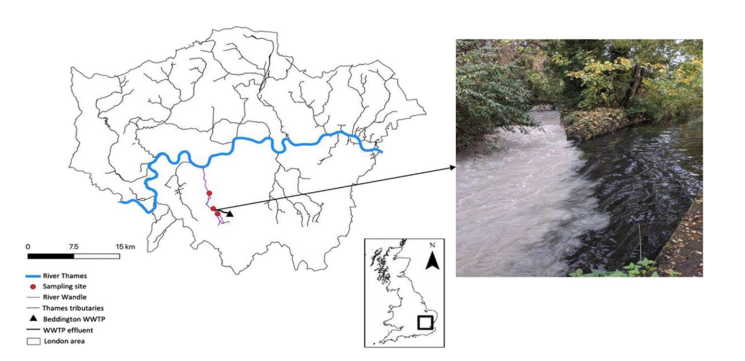Research to quantify the nutrient dynamics in urban river ecosystems helps us improve river restoration practices. Scientific findings can provide much needed evidence to support conservation policies geared towards returning rivers to improved ecological conditions.
To contribute, King’s Water Members Dr. Robert A. Francis , Dr. Michael A. Chadwick and PhD Geography Student Meng Zhang looked at uptake and regeneration fluxes and concentrations of nutrients upstream and downstream of a wastewater treatment plant (WWTP) in the River Wandle.

Sampling sites on the River Wandle, a tributary of the Thames, UK
An article for Environmental Processes detailing the research is available in here for open access. Some major highlights of the research include:
- Sewage effluent resulted in elevated nutrient concentrations and modified fluxes.
- Flux was affected by initial nutrient concentrations, DO and microbial activity.
- Inexpensive approaches to study nutrient dynamics are needed for river restoration.
From The Abstract:
“Our results provide further evidence to show that reductions in river nutrients are paramount for improving river ecological conditions. Additionally, we suggest that more research is needed to evaluate chamber based experimental approaches to make them more comparable to in-situ flux methods.”
Be sure to check out their important work!